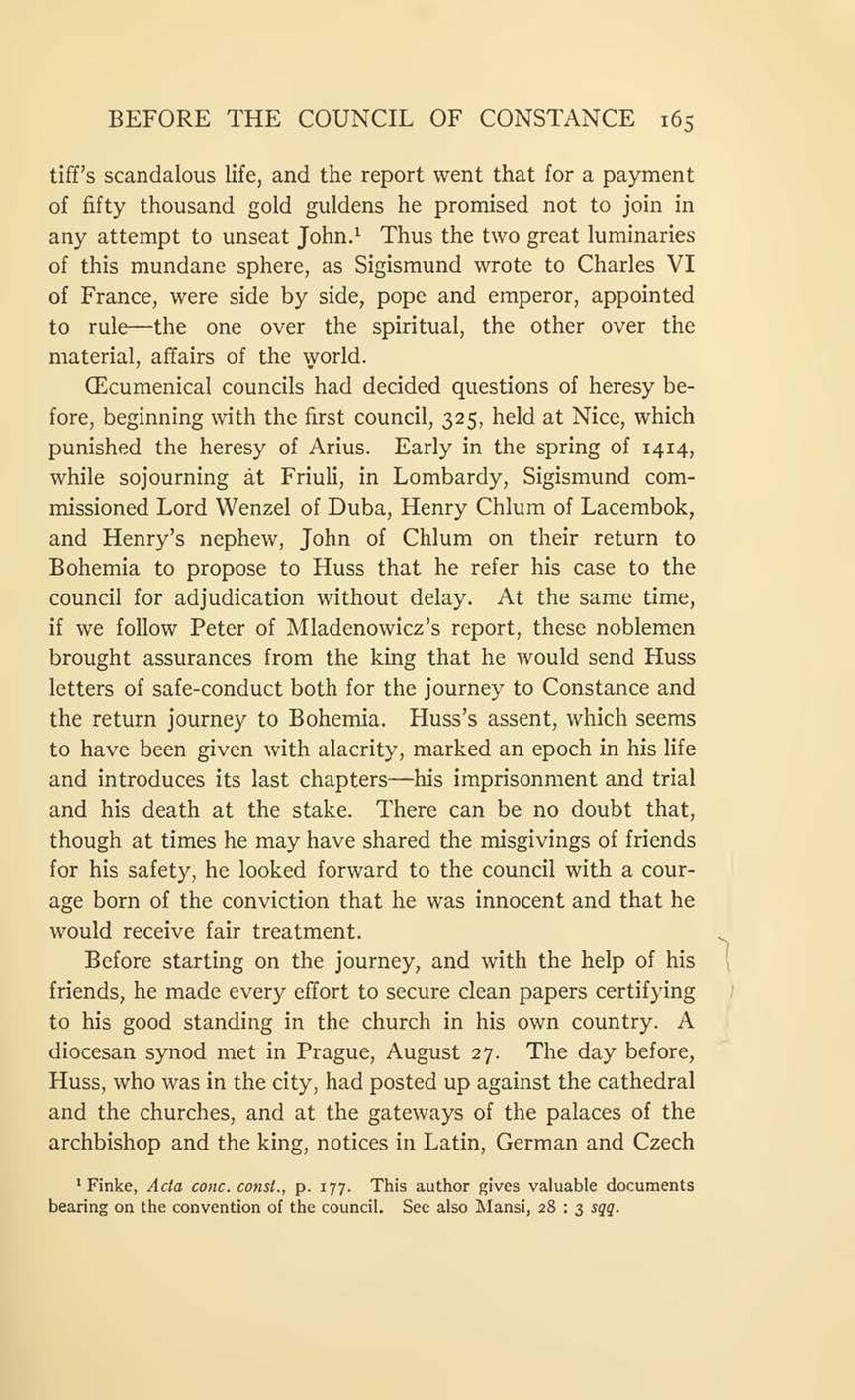tiff’s scandalous life, and the report went that for a payment of fifty thousand gold guldens he promised not to join in any attempt to unseat John.[1] Thus the two great luminaries of this mundane sphere, as Sigismund wrote to Charles VI of France, were side by side, pope and emperor, appointed to rule the one over the spiritual, the other over the material, affairs of the world.
Œcumenical councils had decided questions of heresy before, beginning with the first council, 325, held at Nice, which punished the heresy of Arius. Early in the spring of 1414, while sojourning at Friuli, in Lombardy, Sigismund commissioned Lord Wenzel of Duba, Henry Chlum of Lacembok, and Henry’s nephew, John of Chlum on their return to Bohemia to propose to Huss that he refer his case to the council for adjudication without delay. At the same time, if we follow Peter of Mladenowicz’s report, these noblemen brought assurances from the king that he would send Huss letters of safe-conduct both for the journey to Constance and the return journey to Bohemia. Huss’s assent, which seems to have been given with alacrity, marked an epoch in his life and introduces its last chapters—his imprisonment and trial and his death at the stake. There can be no doubt that, though at times he may have shared the misgivings of friends for his safety, he looked forward to the council with a courage born of the conviction that he was innocent and that he would receive fair treatment.
Before starting on the journey, and with the help of his friends, he made every effort to secure clean papers certifying to his good standing in the church in his own country. A diocesan synod met in Prague, August 27. The day before, Huss, who was in the city, had posted up against the cathedral and the churches, and at the gateways of the palaces of the archbishop and the king, notices in Latin, German and Czech
- ↑ Finke, Acta conc. const., p. 177. This author gives valuable documents bearing on the convention of the council. See also Mansi, 28: 3 sqq.
